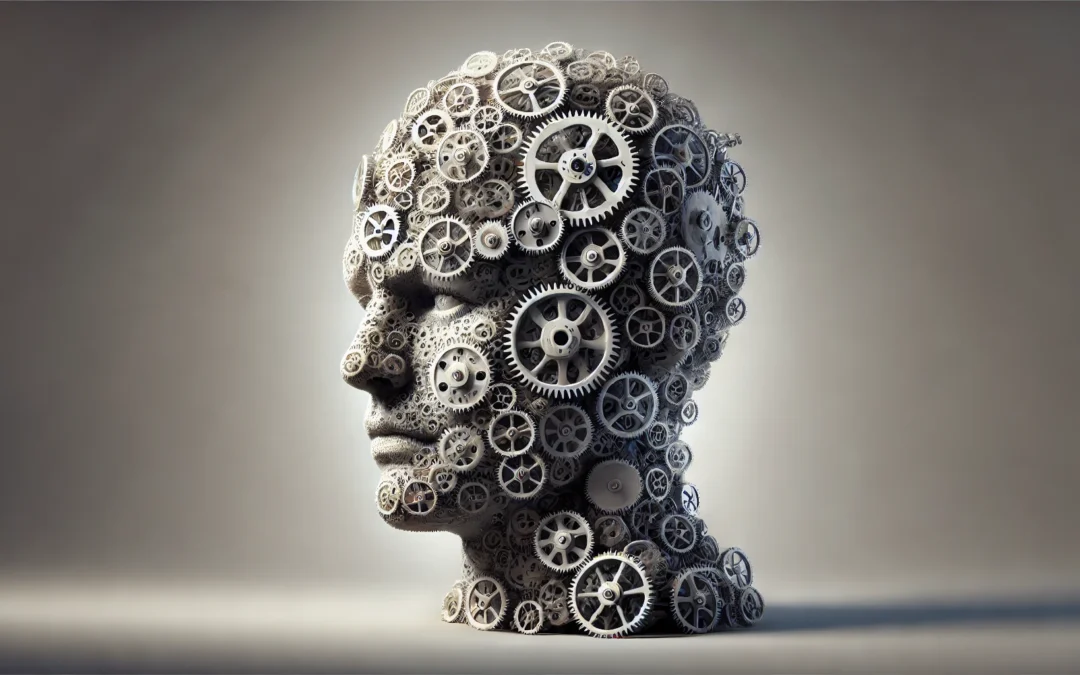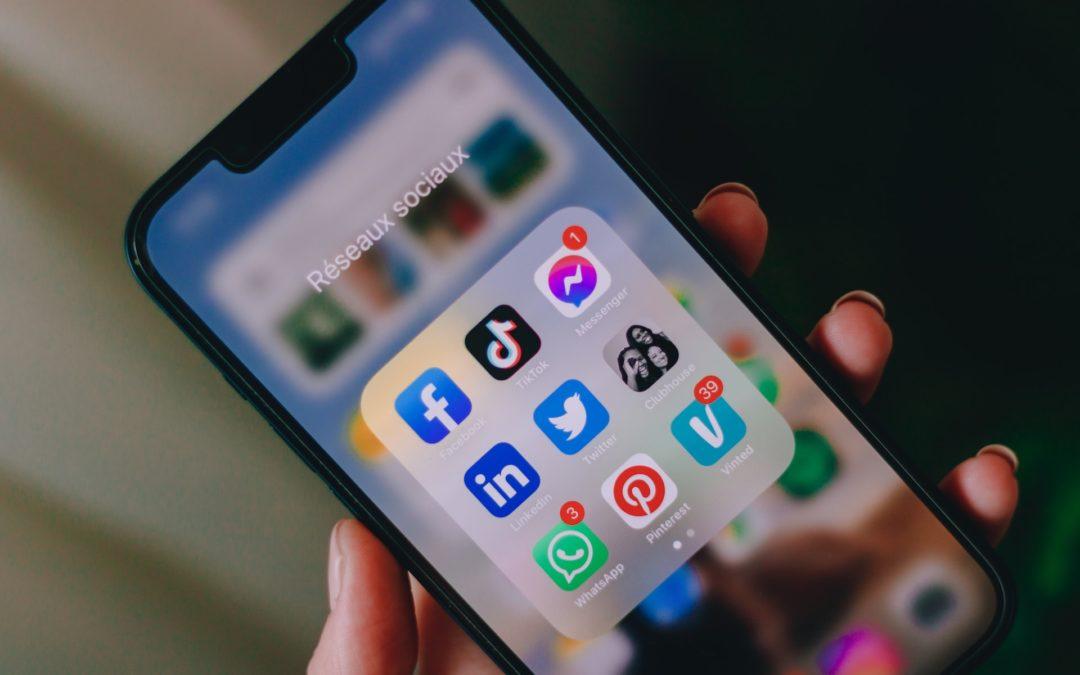In today’s interconnected world, the impact of social media is undeniable. It has revolutionized the way we communicate, share information, and connect with others. However, this transformation comes with its own set of challenges and complexities. In this comprehensive discussion, we will delve into the top 30 disadvantages of social media, ranging from privacy concerns to mental health implications. We’ll also explore the pros and cons associated with social media, highlighting its influence on society and human behavior. To navigate this digital landscape responsibly, we’ll provide valuable tips on how to be a good netizen, fostering a more respectful and constructive online environment. So, let’s embark on this journey to better understand the multifaceted world of social media and its impact on our lives.
What is Social Media?
Social media is a digital platform or online technology that allows people to create, share, and interact with content, information, and each other. It provides a virtual space for individuals and organizations to connect, communicate, and engage with a global audience. Common social media platforms include Facebook, Twitter, Instagram, and LinkedIn, among others. Users can share text, images, videos, and links, and they can engage in discussions, follow or be followed by other users, and react to or comment on posts. Social media has become a powerful tool for personal communication, social networking, and information dissemination, as well as a platform for businesses and influencers to connect with their target audiences. It has profoundly transformed the way we communicate and share information in the digital age.
Top 30 Disadvantages of Social Media
1. Privacy Concerns – One of the most significant issues is the invasion of privacy. Your personal information can be easily accessed, leading to identity theft and other privacy breaches.
2. Cyberbullying – Social media platforms can be breeding grounds for cyberbullying, which can have severe emotional and psychological consequences.
3. Addiction – The addictive nature of social media can lead to decreased productivity and negatively impact real-world relationships.
4. Fake News – The spread of misinformation on social media can lead to misinformation, confusion, and even harm in some cases.
5. Online Harassment – Users can become victims of harassment or online abuse, which can be emotionally distressing.
6. Negative Mental Health Effects – Studies have linked excessive social media use to increased levels of anxiety, depression, and loneliness.
7. Comparative Envy – Social media often leads to people comparing their lives to others, causing feelings of inadequacy and jealousy.
8. Time Wasting – Scrolling through social media feeds can consume a substantial amount of time, which could be spent on more productive activities.
9. Reduced Physical Activity – Excessive use can lead to a sedentary lifestyle and health issues.
10. Filter Content – Social media algorithms tend to show you content that aligns with your beliefs, which can reinforce bias and limit exposure to diverse perspectives.
11. Narcissism – People can become overly self-absorbed, seeking validation through likes, comments, and shares.
12. Distraction – It’s a major distraction at work, school, or while driving, leading to accidents and decreased focus.
13. Sleep Disruption – The blue light emitted from screens can interfere with sleep patterns.
14. Phantom Vibration Syndrome – Users often feel their phones vibrate when they haven’t, which can be stressful.
15. Reduced Face-to-Face Communication – In-person communication skills can deteriorate due to excessive online interactions.
16. Loss of Real-World Connection – Deep online relationships can replace physical friendships.
17. Decreased Empathy – Online interactions can make it easier to be cruel or insensitive, reducing empathy.
18. FOMO (Fear of Missing Out) – Social media can amplify feelings of missing out on events or experiences.
19. Exposure to Inappropriate Content – Children can access harmful or explicit content on these platforms.
20. Legal Issues – Inappropriate posts or comments can lead to legal trouble.
21. Loss of Authenticity – Some users curate highly polished, unrealistic versions of their lives.
22. Phishing Scams – Social media is a fertile ground for phishing attempts and scams.
23. Information Overload – The constant stream of data can lead to cognitive overload and decreased attention spans.
24. Social Isolation – Paradoxically, excessive use of social media can lead to social isolation.
25. Data Mining and Targeted Ads – Your data is often collected and used for targeted advertising.
26. Health Comparisons – Users often post their health and fitness achievements, leading to unhealthy body image comparisons.
27. Reduced Productivity – It’s a significant productivity killer, especially in the workplace.
28. Decreased Critical Thinking – Clickbait headlines and superficial content can reduce critical thinking skills.
29. Hacking and Security Risks – Personal information can be at risk if not properly secured.
30. Political Polarization – Social media can exacerbate political divisions by promoting echo chambers.
Key Features of Social Media
The advent of social media has ushered in a new era of digital communication and connectivity. In this digital landscape, several key features define the essence of social media platforms, reflecting their profound impact on society, culture, and communication:
User-Generated Content
At the heart of social media lies the power of users to create and disseminate content. This content spans a broad spectrum, from personal updates and photographs to professionally crafted articles and videos.
Profiles and Networks
Social media users have the capability to construct detailed profiles, establish connections, and foster networks that enable them to engage with individuals who share similar interests or affiliations.
Interactivity
Social media platforms provide a rich array of tools that facilitate user engagement. These tools encompass the ability to interact through comments, likes, shares, and private messaging.
Real-Time Updates
Many social media platforms offer real-time updates, ensuring that users stay up-to-date with the latest content from their connections and the accounts they follow.
Multimedia Content
The versatility of social media shines through its support for a wide array of media types, encompassing text, images, videos, audio, and live streaming, making it a dynamic channel for communication and expression.
Privacy and Customization
Users are bestowed with the power to customize their profiles and fine-tune their privacy settings. This empowerment allows them to exert control over who can access their content and engage with them.
Content Discovery
Social media platforms employ sophisticated algorithms that scrutinize user preferences and behavior to tailor personalized content feeds. This tailored content keeps users both engaged and informed.
Global Reach
One of the striking attributes of social media is its transcending of geographical boundaries. It enables connections and communication that span the globe, fostering a sense of interconnectedness and global community.
Information and News Dissemination
Social media wields substantial influence in the rapid dissemination of news and information, a power that extends to both accurate and, at times, misleading content.
Business and Marketing
In the realm of commerce, social media has evolved into a potent tool for businesses to reach and engage with their target audiences. It has become a cornerstone of digital marketing and advertising strategies.
Social and Cultural Impact
The profound influence of social media on society is undeniable. It shapes public discourse, propels social movements, and exerts a profound impact on culture, politics, and a myriad of other facets of life.
Data and Analytics
Social media platforms offer a wealth of insights through data and analytics tools. These resources prove invaluable for both users and businesses seeking to grasp trends and understand user behavior in this ever-evolving digital landscape.
The Biggest Pros and Cons of Social Media
Now, let’s look at the pros and cons of social media and how they impact society and behavior:
Pros:
- Social media connects people worldwide, fostering global understanding and collaboration.
- It’s a powerful tool for raising awareness and mobilizing social and political movements.
- It provides a platform for businesses to reach a broader audience and engage with customers.
- Valuable educational resources and information are readily available.
- Social media platforms offer entertainment and escapism through various content.
Cons:
- The echo chamber effect can reinforce existing beliefs and hinder open dialogue.
- Users may seek out and accept information that confirms their pre-existing views.
- Real-world relationships may suffer as more interactions occur online.
- The art of face-to-face conversation is diminishing.
- Personal data is constantly at risk due to hacking and data breaches.
How Does Social Media Impact and Change Society and People’s Behavior
Social media has profoundly transformed society and human behavior by revolutionizing communication, information dissemination, and interpersonal relationships. It has fostered a more interconnected world, enabling the rapid spread of ideas, news, and movements. The problem is that this high level of connectedness can make echo chambers more powerful promote confirmation bias, and lead to addictive behaviors. Social media’s influence on identity, self-esteem, and the way people interact with each other has prompted shifts in social norms, self-presentation, and the dynamics of human relationships. You must be careful to find your way around the two sides of its effects because using the pros and reducing the cons is key to creating a more fair and knowledgeable digital society.
Tips on How to Be a Responsible Netizen
Being a responsible netizen, or a responsible citizen of the internet, is crucial for maintaining a healthy online community. Here are 10 tips to help you navigate the digital world responsibly:
- Treat fellow internet users with respect and kindness. Remember that there are real people behind the screens, and your words and actions can have real-world consequences.
- Safeguard your personal information. Be cautious about what you share online, and use strong, unique passwords for your accounts.
- Before sharing information or news, make sure it’s accurate. Misinformation spreads quickly, and fact-checking helps prevent the dissemination of false or misleading content.
- Do not engage in or tolerate cyberbullying. Report abusive behavior, and if necessary, block or mute individuals who engage in harmful online interactions.
- Respect intellectual property rights by not using or sharing copyrighted material without permission. Give credit when sharing others’ work.
- Follow the previous tips on managing your social media presence, being respectful, and thinking before you post.
- Help others, especially younger internet users, understand digital literacy, online safety, and responsible online behavior.
- When discussing controversial topics, engage in constructive, open, and informed discussions. Avoid personal attacks and ad hominem.
- If you come across abusive or harmful content, report it to the platform administrators. Reporting helps maintain a safe online environment.
- Share content that informs, inspires, or entertains in a positive way. Contribute to the internet’s collective knowledge and culture in a constructive manner.
Social media, when harnessed wisely, can empower global connectivity and advocacy, but it also requires us to navigate its complexities. To this end, we’ve provided tips on how to be a responsible netizen, emphasizing the importance of respect, privacy, and digital literacy. By being mindful of these elements, we can collectively create a more positive, informed, and empathetic digital world, where the benefits of social media can be fully realized while mitigating its drawbacks. Remember, the digital landscape is a reflection of the choices and actions of its users, and we all play a part in shaping its future.
The Most Popular on BitGlint

20 Overthinking Examples & Definition
Overthinking is something we all experience, but it becomes a problem when it starts to control our thoughts and...

Fairness: 20 Real Life Examples & Definition
Fairness is something we all recognize, whether as children on the playground or as adults at work. It’s about...

25 Examples of Soft Power in International Relations
Countries today use more than just military or economic force to shape the global landscape. They increasingly rely on...

20 Patience Examples You Can Use Daily
Life moves quickly, and we’re often used to getting things right away. But learning how to wait and manage our...

Top 100 Essential Travel Items
Planning your next trip and not sure what to pack? Don’t worry, we’ve got you covered! Whether you’re a frequent...

Culture of Silence: 20 Examples & Definition
In many communities and organizations, the "culture of silence" is a powerful...

20 Key Concepts in International Relations
International relations (IR) is a broad discipline that explores how countries and other global actors interact. From...
Get Inspired with BitGlint

